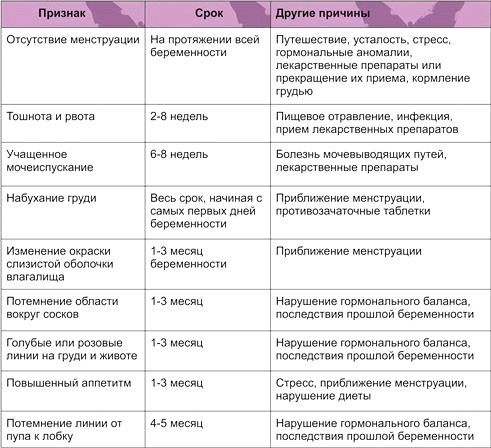The human body is a living substance, it is sensitive to the processes occurring around it. Magnetic storms, pressure changes, emissions from industrial enterprises affect the course of life reactions.
The changes relate to the composition of the blood and its pressure, the amount of hormones produced. Some factors cause hormonal imbalance and initiate a delay in menstruation.
Any physiological processes have variations in the norm. For example, a pregnancy can last from 38 to 42 weeks. The monthly cycle is from 25 to 33 days. The birth weight of a baby varies from 2.5 to 3.5 kg (not counting pathological abnormalities).
Let’s look at how many days there may be a delay in menstruation.
Menstruation delay rate and violations
- Delay of menstruation for 2 days – is not considered a pathology. Such a delay can be caused by jumps in atmospheric pressure, or changes in street temperature.
- Delay of menstruation for 3 days – also does not indicate a pathology or gynecological problem. Fluctuations in the onset of menstruation in a few days is normal for many women. Monthly hours can be inherent in the female body with a measured rhythm of life, lack of daily stress, good nutrition and normal physical activity. Since the living conditions of a modern woman are completely different – for many, the onset of menstruation is shifted by 2 or 3 days.
- Delay of menstruation of 5 days is the average period between the norm and pathology. It is worth considering whether everything is in order in the body. If you had a cold, inflammation, if you had the flu or caught another infection, your period may be delayed for 5-7 days.
- Delay of menstruation for 7 days – requires observation and aftercare of the transferred inflammations (flu, acute respiratory infections, bronchitis, tonsillitis). Delayed menstruation for a week – the border between pathology and the norm.
- Delay of menstruation for 10 days – requires examination. It is necessary to do an ultrasound of the ovaries, determine the stage of follicular maturation.
- Monthly delay for a month – indicates a hormonal disorder. You may need to take hormonal drugs to establish a monthly cycle. At the same time, it is necessary to reconsider the way of life – get enough sleep, eat well, stop drinking alcohol, smoking and other factors of chronic poisoning.

For lactating women, a delay in menstruation for a month is not a pathology, but the norm. With frequent feeding, ovulation does not occur, this is a natural measure of protecting the body from pregnancy. If feeding becomes less frequent, ovulation and the onset of menstruation are possible. If the frequency of feeding has changed (the child was sick, and you often breastfeed him), there will be no ovulation again, respectively, menstruation will not begin.
How much menstruation can be delayed depends on the woman’s health and the environment. Let’s take a closer look at how environmental and internal factors affect hormone production and a possible delay in menstruation.
The main reason is a possible pregnancy.
Determining the presence of pregnancy is important for those women who did not plan a birth in the near future. The earlier the conception is discovered, the less the consequences of its interruption.
In addition, early detection of pregnancy with delayed menstruation is necessary for those who work in hazardous work. From the first days, it is necessary to limit contact with harmful substances.
The most reliable way to determine pregnancy is a test. The test strip is lowered into morning urine and held for 1 minute. After it is placed on a dry surface for reactions (another 5-10 minutes). After a designated period of time, one or two lines appear on the test strip. Two features speak of the onset of pregnancy, one of its absence and the formation of a delay for other reasons.
The cheapest tests show pregnancy only 2 weeks after the first day of delay. More expensive options are able to make the correct diagnosis from the first day of the absence of menstruation. In order for the test to show true results, it is necessary to collect morning urine – it will have the maximum concentration of sex hormones.
A negative test with a delay in menstruation indicates the absence of pregnancy (except for exceptions – insufficient amount of hormones, such a pregnancy often ends in a miscarriage).
With a negative analysis, the question arises, why is the delay in menstruation, if not pregnant? Let’s look for an answer together.
Other causes of delayed menstruation
Delayed menstruation for longer than 7 days is called “ovarian dysfunction”. The absence of menstruation for 6 months was called amenorrhea. Here is a list of those reasons that disrupt the production of hormones and shift the hormonal background.
The reasons for the delay in menstruation (except pregnancy) are divided into physiological and exogenous.
Physiological factors:
- Malnutrition, anemia, low weight (determined by body mass coefficient (BMI) – less than 18). Among vitamins, menstruation is especially affected by a lack of magnesium, vitamins C, B6 (ascorbic and folic acid).
- Helminthic invasions (in the process of life, worms poison the body with their secretions, so their presence is constant toxins and a violation of the microflora of internal organs).
- Chronic lack of sleep. With insufficient sleep in a woman’s body, the synthesis of hormones is disrupted, which initiate the onset of menstruation.
- Sudden weight changes – dumping or gaining. As well as obesity – it blocks the production of tarragon, this slows down the development of the follicle, postpones the timing of ovulation.

An important factor is the physiological changes associated with a woman’s disease:
- Intoxication (poisoning by alcohol, tobacco, industrial substances in harmful production) – nature protects itself from the birth of a weakened child’s body or freak, therefore, after toxic poisoning, follicle formation is disturbed, menstruation does not occur, conception becomes impossible for some period of time.
- Endocrine disruptions (often with thyroid disease).
- Gynecological inflammation and disease (myoma, endometriosis, polycystic), as well as cystitis – inflammation of the bladder. Gynecological procedures – cauterization of erosion, curettage. For gynecological reasons, there is often a delay in menstruation and white discharge. Other symptoms are also possible – pulls the lower abdomen with a delay in menstruation or the mammary glands swell.
- Kidney disease – the hormone progesterone is produced by the adrenal glands, and the corpus luteum of the follicle, so with renal failure, a lack of progesterone, necessary for the onset of menstruation, is formed.
- Taking medications (contraceptives containing calcium complexes, ampicillins), some types of treatment (chemistry, radiation, cauterization of erosion).
- Low-calorie diets – sex hormones estrogen and progesterone are synthesized from cholesterol molecules. Therefore, the lack of cholesterol in the body of a woman (with prolonged low-calorie diets) does not allow the body to synthesize a sufficient amount of sex hormones.
Exogenous causes – associated with environmental changes:
- Difficult environmental conditions, industrial emissions, poisoning of soil and groundwater by herbicides, poisons, chemical fertilizers. From the soil, air and water, toxic substances penetrate the woman’s body. Here they accumulate and can cause various disorders (including the monthly cycle).
- Stress: moving, nervous and mental experiences, sunburn (can delay menstruation for two to three months),
- Excessive physical exertion (work on a sports result).
- Change of climate or time zone.
When asked why there is a delay in menstruation, there is no single answer. The effect of several factors often affects – living in an ecologically dirty region and additional poisoning by smoking. Or anemia due to chronic stress. Nature protects a woman from conception and the birth of a weak sick child. Therefore, in adverse situations, in a diseased body, the follicle does not ripen, the menstruation is delayed.
Is it possible to cause menstruation with a delay
Doctors of Ancient Greece recommended in case of illness to change the way of life, and only after that – contact a doctor. What to do if the delay in menstruation lasts more than a week? How to cause menstruation at home?
What herbs can be used
The herbs that stimulate the movement of bile, blood, intestinal motility and kidney activity (with diuretic properties) are used.
Parsley, wormwood, elecampane, fennel, carrot seeds – their effect will be more pronounced when ingested in the form of ground powders (from dried parts of plants).
If the delay in menstruation is caused by a lack of vitamins, nettle leaf powder, rosehip infusion, vitamin berries (cranberries, sea buckthorn, viburnum) will help. In the absence of menstruation, against the background of stress, they drink infusion of valerian root.
Essential and vegetable oils
Black cumin oil – contains the necessary vitamins C, B6, magnesium, fatty acids, which provide the synthesis of prostaglantids, which, in turn, control the formation of female sex hormones.
This oil is effective not only for the treatment of amenorrhea, but also prevents the cessation of menstruation with menopause (postpones the timing of the reduction of sexual functions).
Vegetable oils (olive, corn, linseed) – are indicated for those women who have been using a low-calorie diet for a long time. Cholesterol is necessary for the synthesis of sex hormones, which means for menstruation and genital health.
How to cause menstruation with a delay at home
In order to cause menstruation, it is necessary:
- Stimulate the production of hormones.
- Organize a rush of blood to the genitals (the active movement of blood eliminates stagnant processes, inflammation, intoxication).
The following factors and means are used:
- A complex of vitamins and minerals. Especially increased doses of ascorbic acid (vitamin C) – for the synthesis of hormones.
- Full rest and sleep at least 8 hours a day – to normalize the hormonal background.
- Correction of nutrition (full provision of the body with vitamins, minerals, fats, proteins, carbohydrates).
- To activate blood circulation in the pelvic area – take a hot bath, do back massage in the lumbar region and light massage of the lower abdomen. Sex also helps.
In addition, it is necessary to normalize the environment, remove stresses or review their assessment, their own negative reaction.
What doctors say: drugs for hormonal disruption
Medication for ovarian dysfunction (delayed menstruation) uses hormonal drugs with progesterone. The level of hormones during a woman’s monthly cycle varies. Immediately after menstruation, estrogen grows in the body of a woman. It reaches a maximum in the middle of the cycle, at the time of ovulation. After ovulation (the exit of the egg from the follicle) progesterone begins to be produced.
During pregnancy, this hormone ensures the introduction of the egg into the uterine mucosa (in case of fertilization). In the absence of fertilization, the hormone prepares the uterus for the onset of menstruation. If fertilization has not occurred, the hormone level reaches critical values, after which it drops to a minimum. Menstruation occurs.
With a delay in menstruation, doctors prescribe drugs that artificially increase progesterone levels.
Duphaston with a delay of menstruation
Duphaston is the No. 1 drug for the treatment of delays, cycle disorders and female infertility. It supplies the woman’s body with a synthetic analogue of progesterone – progestogen.

To prescribe the drug, laboratory tests of the level of hormones in the blood are not carried out. The medicine is prescribed for symptomatic signs. Tablets begin to be taken before ovulation (11th or 12th day of the cycle). Take from 11 to 25 days, after which they take a break until the middle of the next cycle.
An analogue of the drug is utrozhestan. It contains natural progesterone from plant components. Unlike its predecessor, Utrozhestan additionally calms the nervous system.
Delayed menstruation without pregnancy is often not a pathology. It is rather a signal that something is wrong in the body. To treat the delay, correction of nutrition, habits, rest and sleep is necessary. Therefore, the general principles of therapy are vitamins, minerals, sleep and a positive attitude.



